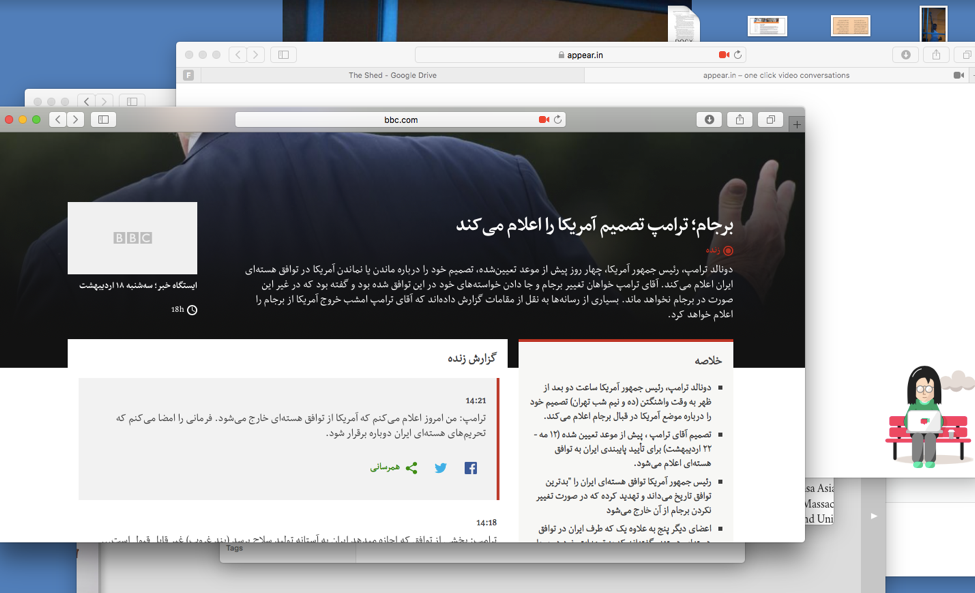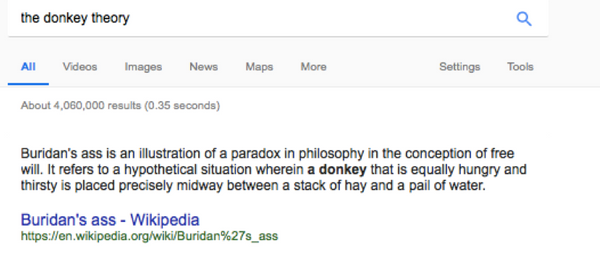A Brief List of Premises from a Maker Stuck with Paper, Politics, and Performances
Yasi Alipour
Last summer, the New York–based magazine Triple Canopy held its annual Publication Intensive between two sites: New York and Providence. Twelve participants—a diverse group of artists, writers, graphic designers, coders, performers, and educators—took part in seminars, discussions, site visits, and workshops to mine the history of print and analyze “today’s networked forms of production and circulation.” June Yoon (MFA GD 19) and Maia Chao (MFA GL 17) gathered the writings of fellow participants into a booklet of “reflections on a collective experience.” v.1 chose this piece—developed following the author’s participation in Triple Canopy’s Publication Intensive 2018—to share. Thanks to the author and Triple Canopy for their permission to reprint.

There are days one has to walk and read. It is neither smart or safe, but sometimes the streets must fade into thoughts. Today, Etel Adnan’s Premonition went on, without a single pause.
“Quite often, deepest meaning of thoughts or words escape me, even while I’m using them. This is how the narrative of history is built, from little error to little error […] In the meantime, countries are being torn down, sinking into insanity. […] History. History is made of dreams that either come true or are thrown into the garbage. We are shadows over shadows. (We may think we are rooted.) […] Science must not replace pain, because when that kind of catastrophe happens, it has no mercy. […] When love is missing, there’s always madness to the rescue. When you run out of wine, there’s beer. That’s all. I do not think with words, but with small stones. And they stick to my throat. […] Just said over the radio: overpopulation is threatening humanity’s survival. We may then wish perpetual warfare in order to control the growth and reach what, the zero degree of security? Life and death are indifferent in their essence to our calculations. […] Always similar to itself is our life.”
The list is as follows:
1. Modernity and Imperialism came to us, simultaneously and all tangled up. Let’s date it early 19th century. Take it as a contradiction muddying all that preceded it and echoing in every moment that followed.
2. Human beings desperately think through binary logic—on the notion of truth and falsehood—and this has failed us. (Is this just who we are, rational beings, or are we educated to do so?)
3. Based on such languages of logic, our world is filled with paradoxes. If you allow a paradox, then everything can be concluded from it. It can’t all just be true. Russel should have found a better answer than demanding we further limit our language.
4. There is an infinity between 0 and 1. There is an unending universe of grays laughing at black and white. We continuously fail at thinking in spectrums. Anxiety is real.
5. My region has no name. Call it “Middle East,” “Middle East and North Africa,” “Middle East, South Asia, and North Africa.” Let it grow, it’s all attempts to define it in negative anyway. Consider “Us” as Iran, as Tehran, as north-Tehran, as Pasdaran Street, Kaveh Valley, or that staircase behind the mural of University of Tehran’s Art Department, where we learned to waste hours burning cigarettes that were legally banned for our gender.
6. Nation-State is the problem and it loves teaching history. I keep listening to our neighbors’ music. Lost in all the accents, languages, and rhythms, I make up fictions in my head where there is a place for cafes where we can chat about this unhinged region we inherited and now share.
7. A failed revolution doesn’t count. My “Green Revolution” loses meaning gradually as the Google Image search result becomes increasingly irrelevant. I no longer know what to call my memories of resistance.
8. It’s 2018: What is at stake is democracy itself. If democracy fails; if caught between Neo-liberalism and Populism, it’s failure was in fact long coming; if our story is no longer to be the tale of a civil society in defiance, then what is the point of anything?
I simply do not know who I am and what I am doing, if I am not a citizen within legal rights. Did that/Could that ever exist globally?
9. Each time I utter “Islamic Abstract Geometric Art,” I laugh inside. I have and do use the term often. In Farsi, I would just point at a ceiling. Or I just believe I could.
10. Self-exoticizing needs to become an official word in English because as your international student, I need to consider and discuss it.
11. There was once a mother and her daughters walking from home to school. While crossing “Palestine” street to enter “Revolution” street, the mother asks the children which path they should take. She is testing to see if they understand the “Hemar” Theory: the shortest path between any two points is the line connecting them. The answer is always to go straight. “Hemar” is the Arabic word for “Donkey,” supposedly even the animal understands this by instinct. The theory always makes the younger child laugh. “Hemar” is such an official way to say the naughty word, “Donkey.”
12. The mother is wearing a long black robe and a black scarf. Mandatory Hijab came randomly one day in the midst of the Revolution’s yelling matches. It was enforced by pure violence, a bitter lesson of dominance. This was before the kids were born. There would come a summer, when, so very slowly, all the women rebelled and dared to wear colors again. Tehran was suddenly bursting with colors and no one could stop it. You’re not getting it. You will never understand.
13. The Donkey Theory according to Google.

14. Fuck Uniforms.
15. Revolutions sometimes win; they become States, and then call everything in their way—from your unhappiness to the favorite rock band of your teen years—Counter-Revolutionary. Then one day, you find yourself in a conference room—the very same room where they give away the Pulitzer Prize—and listen with pride as Spivak and Balibar compete over Marx to debate on “Counter-Revolution.”
It takes you an hour, but you finally translate it to your mother tongue and burst into untimely laughter.
16. You repeat these stories on long tangents, hoping to find space to explain it all. Or you find a piece of paper to hold all the thoughts. Then you give it to the closest friend at hand.
17. I long for a dedicated Museum of Art for my nameless region, or maybe it’s just for me. I know all the ways these institutions are inherently problematic, but I can’t help it. I wish there would be a place where people gathered and wrote histories and books that I could send to you, expect you to read—get mad at you for ignoring—and then you would get it all. Or at least, you could then see our contemporary life as something other than odd.
18. The English language has lost all meaning and urgency.
19. Draw me the line where decades of the frustration of being silenced resulted to our deep fear of permitting silence.
20. I may be wrong.
21. May 12th was the deadline “by which President Trump is to decide whether to pull out of the Iran nuclear deal.” He announced it two days early. I stared at half of my computer screen as if my political future was a game of soccer, and on the other half, I gazed over my face, waiting politely for a Skype interview. These days, I hear in passing that the economy is crashing, Internet is blocked, life is on halt, and a nation holds its breath. I guess I’m in New York to ask you, Isn’t my life random?
Yasi Alipour is an artist, writer, educator, curator, and a politically concerned folder. Officially institutionalized by Columbia University (MFA 2018), based in Brooklyn, and simply Iranian, she currently marvels on “counter-history” as an oxymoron and the power of forgotten letters.